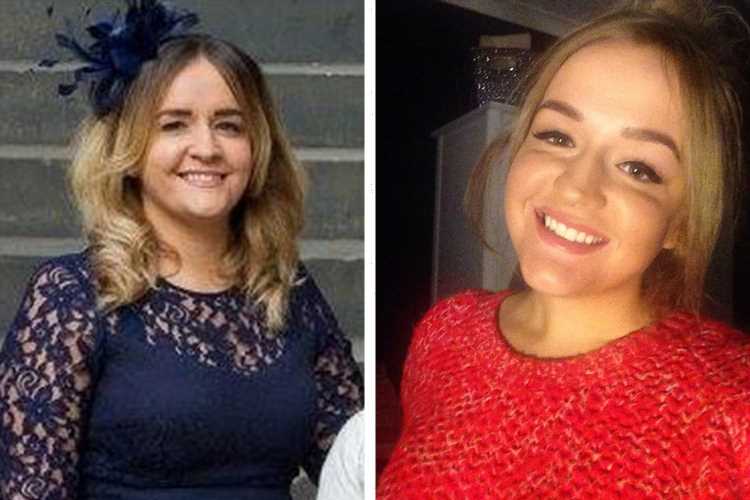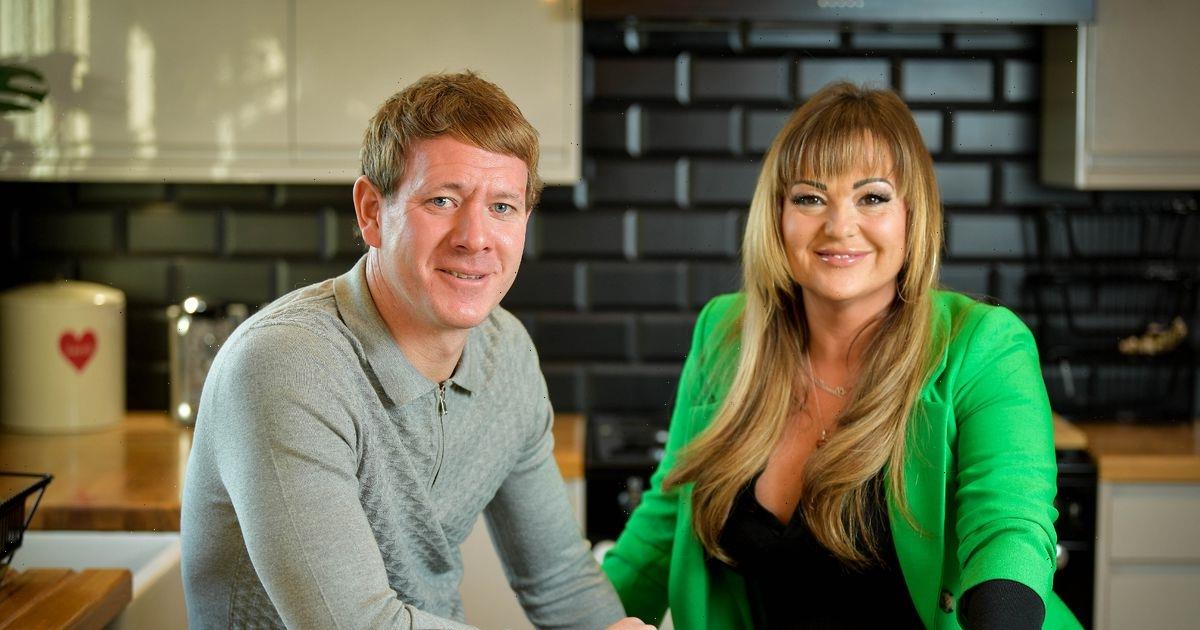As I took out the pregnancy test from its packaging while in the bathroom at my university, I never actually thought it’d come back positive.
But sure enough, I saw the two little lines and my heart sank. So I skipped class to go straight home and call Max* – the guy I was sleeping with at the time – with the news.
No answer. So I then arranged for a test at a medical laboratory.
After the appointment, when the woman at the desk of the lab passed my results to me, I didn’t understand so I asked: ‘What does it mean?’
‘It means you are two months pregnant,’ she replied coldly. Tears fell down my face and suddenly, I felt as if my world was closing in around me.
My best friend Jane*, who was with me, gasped and covered her mouth in shock. I felt lost. ‘What am I going to do now? How do I have an abortion?’ I thought.
Multiple thoughts were speeding through my head.
I didn’t want to be pregnant and hadn’t seriously considered being a parent at the age of 22. I knew I wanted an abortion, but there was one problem – in Poland, my home country, abortion laws are some of the most restrictive in Europe.
Abortion is now permitted only in cases of rape or incest or when pregnancy threatens a mother’s health or life. The atmosphere of fear and stigma surrounding abortion is prominent in the Polish health service.
So when I found out about my pregnancy, I knew that I did not want to have an unsafe procedure in somebody’s living room. We left the lab and I was crying. Then I calmed down, and said to Jane: ‘Slovakia. I must go to Slovakia.’
Not only did I feel pushed away, but I felt slut-shamed by my own lover
Back then – seven years ago – I was young, free and single. I liked having multiple partners and experiencing different types of sexual encounters. Unfortunately, being foolish (what I saw as trustworthy at the time) resulted in an unwanted pregnancy. The long and short of it is that I didn’t use a condom.
I thought Max was one of my best friends of a few years and I remember finally telling him: ‘Listen, we have a problem – I’m pregnant.’ His reply was not one I was expecting.
‘What?! Are you sure it’s even mine?!’ he spluttered. I was absolutely sure.
I didn’t have unprotected sex with anyone else around that time and the hormone test from the lab backdated the conception to the day I was visiting him in Belgium.
Not only did I feel pushed away, but I felt slut-shamed by my own lover. Max went into a complete denial and I felt that cold, sort-it-out-yourself tone in his voice.
I told him I was going to have an abortion and that he needed to cover half of the costs – which he begrudgingly eventually did – but he didn’t help with practical things like planning the travel to Slovakia, arranging appointments and accommodation.
Max didn’t seem to care about my wellbeing very much either and reacted with anger whenever I expressed the need for his emotional support. He didn’t want me to come to Belgium either, because he had exams and didn’t want the whole situation to stress him out.
Abortion was first banned in Poland in 1993 – the year I was born – except for three types of extreme circumstances: rape or incest, danger to a pregnant person’s health or life and fetal abnormalities.
Last year, abortions in cases of irreversible fetal damage got banned, despite multiple protests across the country. In some places there is no access to legal abortion in any case – a 30 year old woman died of a septic shock in October last year because hospital staff were waiting for fetal heartbeat to stop first.
I fainted. It was a mixture of an empty stomach, a long journey and stress
It makes you dread even having a planned pregnancy in Poland for the risk it has on your own life, and I have friends who have given up on motherhood because of this law.
Unsurprisingly, it’s estimated that up to 200,000 Polish women have abortions each year and around 10-15% of these are induced abroad, according to the Federation for Women and Family Planning. This includes illegal back street surgeries, at-home abortions and the so-called abortion tourism, which is where my abortion comes in.
At two months pregnant, I made the decision to travel to Slovakia – a five-hour drive away.
Jane was an absolute star cheering me up and organising the whole trip. She even got her ex to drive. We left at night and reached our destination in the early morning.
I felt confident in my decision, and safe with my friends – more than I ever did with Max. In the clinic I was treated with kindness by nurses and doctors. Firstly, I had my blood taken for tests. Then, I fainted. It was a mixture of an empty stomach, a long journey and stress.
Clinicians woke me up immediately and gave me vitamins on a drip. Then, I was prepared for the surgery, while my best friend was in the waiting room. I admit – just before the anaesthetics kicked in, I felt scared. I remember holding the doctor’s hand and asking: ‘Are you sure this won’t hurt?’ just before I fell asleep. He said in a friendly voice: ‘You will feel nothing, you will be asleep in a second.’
When I opened my eyes it was all over, and I was in a bit of a shock. I started crying and the nurses gave me a drip, while Jane comforted me. The surgery affected my emotions heavily, leaving me feeling vulnerable and numb at once, but gosh how happy and relieved I was! Suddenly I felt as light as a feather.
In total, the abortion cost €350 (£293), which was a significant amount for a Polish student at the time. Then there was the additional cost of travel and accommodation abroad.
Max and I have never spoken again since my abortion.
Writing about this years later, I’ve found the incredible support and the power of sisterhood I received from the women around me touching and empowering. I never regretted my decision – it was what was best for me.
Everyone should have access to abortion, without having to go on expensive trips abroad like I had to
I got involved in Polish pro-abortion activist movements after relocating to London in 2016. This was when the right-wing Polish government announced its plans of a near-total abortion ban. I joined my first protest at the Polish Embassy in April that year.
Everyone should have access to abortion, without having to go on expensive trips abroad like I had to. Seeing how much sexual education was delivered in the UK – walk-in clinics, free HPV vaccinations and public debate about sexuality and gender – impressed me.
That openness amazed me. Still, reproductive rights are never to be taken for granted. Law can be changed. Abortion was legal before 1993 in Poland and it could be again.
Watching Polish women fight for their rights has mobilised me. I’ve been organising with Dziewuchy London since 2016, which is a group of Polish feminists fighting for abortion rights in Poland.
We have organised multiple protest actions outside the Polish Embassy in London and BBC, spoken on panels at Women of the World Festival at the Southbank Centre and the Festival of Choice at Amnesty International UK, as well as appeared on British and international media – all to raise awareness about the lack of reproductive justice in Poland, and to put pressure on Polish authorities.
Without a doubt, there is a war on women back home – but there’s a silver lining. Polish society has never been so pro-choice in near 30 years –with 66% supporting a woman’s right to choose – and it is thanks to mass protests.
NGOs like Abortion Without Borders and Aborcyjny Dream Team came into existence after 2018 to help women access abortions legally and safely, where their home countries do not. I didn’t know about this type of support when I needed help, and I am thrilled it is openly discussed now.
Empowering each other is crucial to every society – we need to stand in solidarity with women fighting for reproductive justice globally. We are stronger than oppressive governments.
It took women a long fight in Ireland and Argentina, but we won in the end.
We will win in Poland too, and there will be no more unnecessary night trips to Slovakia. I am sure of that.
*Name changed
Do you have a story you’d like to share? Get in touch by emailing [email protected].
Share your views in the comments below.
In this exciting new series from Metro.co.uk, What It Feels Like… not only shares one person’s moving story, but also the details and emotions entwined within it, to allow readers a true insight into their life changing experience.
Source: Read Full Article


